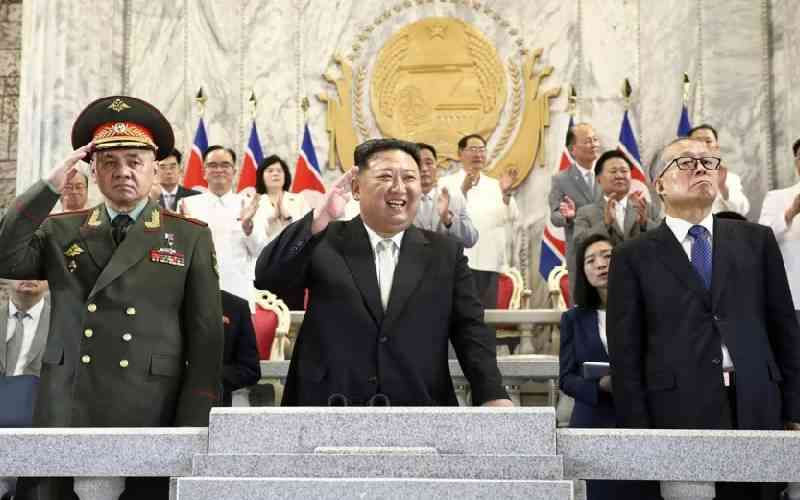
North Korean leader Kim Jong Un was joined by senior Russian and Chinese delegates as he displayed his most powerful nuclear-capable missiles in a military parade marking a major war anniversary. The show of defiance against the United States also served to deepen ties with Moscow as tensions on the Korean Peninsula are at their highest point in years.
Kim attended Thursday night's parade with Russian Defense Minister Sergei Shoigu and Chinese ruling party official Li Hongzhong from a balcony looking over a brightly illuminated Kim Il Sung Square, named after Kim's grandfather, the founder of North Korea.